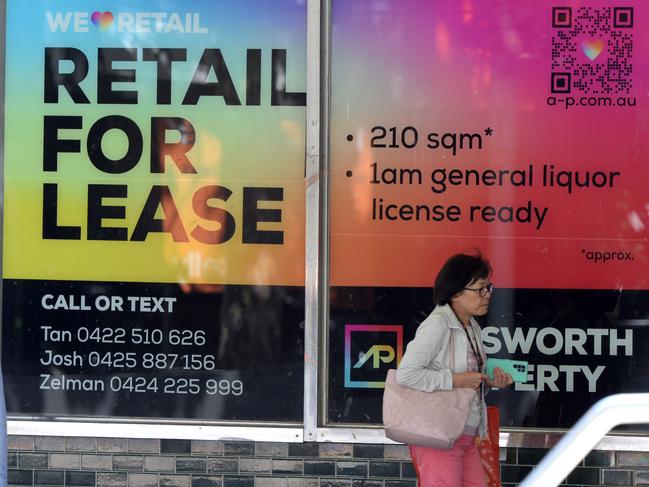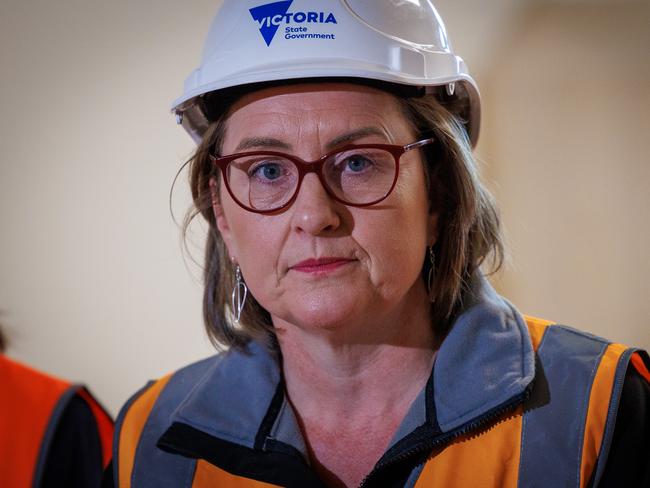Business Council of Australia ranks Victoria worst in nation for business, calls out tax burden, red tape
Jacinta Allan says we’re “open for business” but with high taxes and too much red tape, a new report has revealed Victoria doesn’t stack up against other states — and it warns more businesses will flee.
Victoria
Don't miss out on the headlines from Victoria. Followed categories will be added to My News.
Victoria is the worst state in which to do business in Australia due to the amount of red tape and taxes, a new report has found.
Despite Premier Jacinta Allan’s claim in October that Victoria was “open for business”, the Business Council of Australia has released its annual scorecard ranking the state dead last, and warning more needs to be done to stop businesses deserting the state.
The report found that the state’s payroll tax and land taxes were among the most burdensome in the country.
It comes after a Parliamentary Budget Office report released in June revealed that Victorian businesses are now being taxed at almost double what they were when Labor came to power in 2014.

Payroll and land taxes grew 94 per cent, taking in an extra $6bn; land and transfer duties on commercial and industrial properties have risen 157 per cent.
According to the BCA report, Victorian businesses also struggled with too much red tape.
Cafes and childcare operators were the worst affected.
In comparison, South Australia secured the top spot for having the best regulatory environment, thanks to its lower payroll taxes, reduced property charges, and streamlined business licensing.

Following South Australia, the best places for business were Tasmania, the ACT and the Northern Territory.
In June, Ms Allan flagged her new plan to make it easier for business to access existing government incentives and get industry projects approved quicker.
However, tax relief was not included in the plan.
At the time she stated: “Victoria is the best state in Australia to live, work and raise a family.”

However, Business Council chief executive Bran Black warned that the reality for Victorian businesses was quite different, and that the state needed to address its regulatory environment, which was putting a handbrake on the state’s economy.
“Victoria has some of the least competitive property tax settings, payroll taxes and business licensing requirements in the country. It fundamentally needs to look at how these are holding back its economy,” he said.
On Tuesday, Jacinta Allan rubbished the report, and maintained that despite debt hurtling towards $187.8bn by 2027-28, the state’s economy was strong with more jobs created and more homes approved than any other state.
The Business Council ranked Victoria dead last in its annual scorecard, blaming payroll tax and land taxes for businesses deserting the state.
But Ms Allan appeared to take aim at the Business Council of Australia’s report, referring to them as “people from Sydney”.
“This is a view from others,” she said.
“What I’m focused on is Victorians — Victorians in jobs, because behind every job is a worker and a family who needs the Victorian government focused on them, and that’s what I’m doing.
“Others can comment on their report,”
Ms Allan said the report failed to consider the government’s spending to keep businesses afloat during Covid.
“I also note the Business Council’s report doesn’t pick up on the housing reforms we announced in October,” she added.
Ms Allan conceded her government needed to look at ways to cut red tape and continue to support Victorian businesses.
She said that would be addressed “very soon” in the government’s delayed economic growth strategy, which was set to be released in November.
Opposition finance spokeswoman Jess Wilson said the state’s debt, predicted to soar to $187.8bn by 2027-28, and the state’s bid to recoup money through taxes were of concern.
“After a decade of financial mismanagement, Labor’s ever-increasing taxes are pushing businesses, investment and economic opportunity interstate,” she said.
While Victoria was the worst for cost and regulation it did perform better on some other measures.
The state tied third with Tasmania for having retail trading hours that were conducive to strong business trade. And the housing policy was also having a positive effect, the report said.


